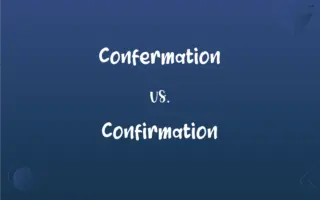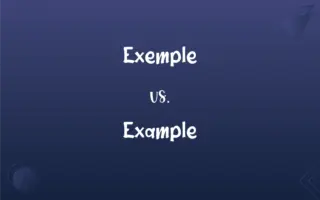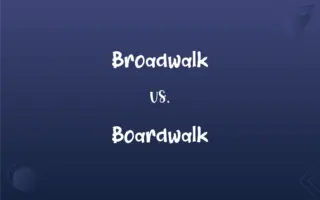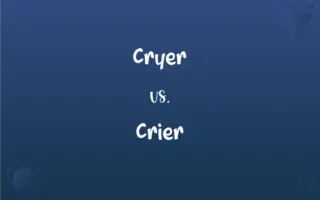Lible vs. Libel: Mastering the Correct Spelling
Edited by Harlon Moss || By Janet White || Updated on March 9, 2024
"Lible" is an incorrect spelling, whereas "Libel" is the correct form, referring to a published false statement damaging a person's reputation.
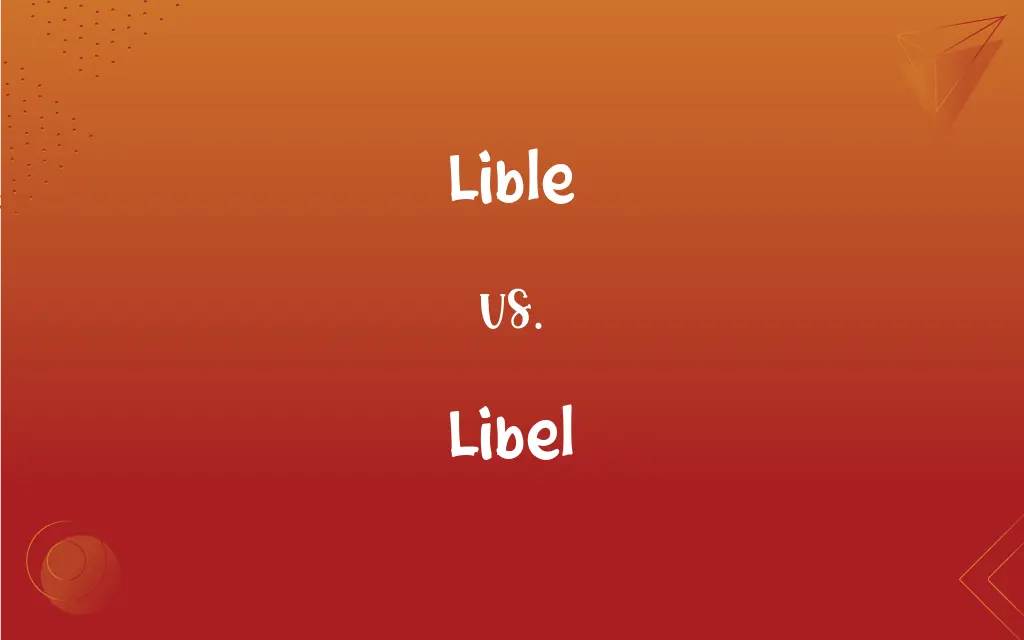
Which is correct: Lible or Libel
How to spell Libel?

Lible is Incorrect

Libel is Correct
ADVERTISEMENT
Key Differences
"Libel" sounds like "label," and both have an 'e' before the 'l'.
Visualize a book of laws on libel, reminding you of the 'e' in the legal term "libel."
Associate "libel" with "liable"; if someone commits libel, they're liable for their actions.
Think of a "libel" case in a "library" — both start with "libe."
Remember, "lie" is part of "libel," and a libelous statement tells a "lie."
ADVERTISEMENT
Correct usage of Libel
He was accused of lible in his latest article.
He was accused of libel in his latest article.
She worried her review might be considered lible.
She worried her review might be considered libel.
The newspaper was sued for lible after publishing the story.
The newspaper was sued for libel after publishing the story.
Writing a false statement as a lible can lead to legal action.
Writing a false statement as libel can lead to legal action.
Libel Definitions
A formal written declaration or statement
The libel detailed the charges against her.
Defamation by written or printed words, pictures, or any form representing a person in a way to damage their reputation
The article was a clear case of libel.
The act or crime of publishing such a statement
He was found guilty of libel.
To misrepresent damagingly
The tabloid libeled him as a criminal.
The legally indefensible publication or broadcast of words or images that are degrading to a person or injurious to that person's reputation.
An incidence of such publication or broadcast.
The written claims initiating a suit in an admiralty court.
To publish or broadcast a libel about (a person).
(countable) A written or pictorial false statement which unjustly seeks to damage someone's reputation.
(uncountable) The act or tort of displaying such a statement publicly.
(countable) Any defamatory writing; a lampoon; a satire.
A written declaration or statement by the plaintiff of their cause of action, and of the relief they seek.
(countable) A brief writing of any kind, especially a declaration, bill, certificate, request, supplication, etc.
To defame (someone), especially in a manner that meets the legal definition of libel.
He libelled her when he published that.
To proceed against (goods, a ship, etc.) by filing a libel claim.
A brief writing of any kind, esp. a declaration, bill, certificate, request, supplication, etc.
A libel of forsaking [divorcement].
Any defamatory writing; a lampoon; a satire.
A malicious publication expressed either in print or in writing, or by pictures, effigies, or other signs, tending to expose another to public hatred, contempt, or ridicule. Such publication is indictable at common law.
The crime of issuing a malicious defamatory publication.
A written declaration or statement by the plaintiff of his cause of action, and of the relief he seeks.
To defame, or expose to public hatred, contempt, or ridicule, by a writing, picture, sign, etc.; to lampoon.
Some wicked wits have libeled all the fair.
To proceed against by filing a libel, particularly against a ship or goods.
To spread defamation, written or printed; - with against.
What's this but libeling against the senate?
[He] libels now 'gainst each great man.
A tort consisting of false and malicious publication printed for the purpose of defaming a living person
The written statement of a plaintiff explaining the cause of action (the defammation) and any relief he seeks
Print slanderous statements against;
The newspaper was accused of libeling him
Any written or pictorial statement that unjustly seeks to damage someone's reputation
The celebrity sued the magazine for libel.
Libel Sentences
She feared the implications of being accused of libel by a public figure.
Winning a libel case requires proving that the published statements were false.
Libel laws protect individuals from false and damaging statements in writing.
The newspaper had to print a retraction to avoid a libel lawsuit.
Discussions on libel reform have been ongoing in the legal community.
He consulted a lawyer to understand the nuances of libel law.
The author sued the magazine for libel after they misrepresented his words.
Libel and slander are both forms of defamation, but libel is written.
The blogger was careful to avoid libel by citing all her sources.
To avoid libel, journalists must thoroughly fact-check their articles.
The company was quick to issue a libel suit against the detractors.
Posting false information online can still be considered libel.
The tabloid has faced multiple libel suits for its controversial reports.
Libel insurance can protect writers and publishers from potential lawsuits.
The verdict in the high-profile libel case sent shockwaves through the media industry.
Accusations of libel can lead to costly and lengthy legal battles.
The politician's libel claim against the newspaper was dismissed in court.
Public figures have a harder time winning libel cases due to freedom of speech protections.
She attended a workshop on how to avoid libel when writing about real people.
In the age of social media, libel cases have become more complex.
Libel cases often hinge on the distinction between opinion and fact.
Defending oneself against a libel accusation can be a daunting task.
The jury awarded damages for libel, finding the defendant's statements were not only false but malicious.
Libel Idioms & Phrases
The ink of libel
Written statements that defame or harm someone's reputation.
The celebrity fought back against the ink of libel with a lawsuit.
A brush with libel
A close encounter with making a potentially libelous statement.
The journalist had a brush with libel but corrected the article in time.
Libel in the making
A situation or statement that could potentially lead to libel.
That accusation is libel in the making if you can't prove it.
To airbrush out of libel
To modify or censor information to prevent it from being libelous.
The editor had to airbrush the article out of libel to avoid legal issues.
Under the cloud of libel
Being under suspicion or accusation of defamation.
The author spent the year under the cloud of libel due to his controversial book.
The shield of libel
Legal protection against defamation.
Public figures often rely on the shield of libel to protect their reputations.
Libel-proof
Someone whose reputation cannot be further damaged by defamatory statements.
The public figure is considered libel-proof due to his notorious behavior.
Walking the libel tightrope
Balancing between making bold statements and avoiding defamation.
Reporters covering sensitive stories are often walking the libel tightrope.
To throw libel to the wind
To disregard the risk of defamation.
In his rage, he threw libel to the wind and made reckless accusations.
To paint with the brush of libel
To make statements that unjustly tarnish someone's reputation.
The opposition tried to paint him with the brush of libel during the campaign.
A quilt of libel
A collection of false statements that harm someone's reputation.
The article was a quilt of libel, piecing together various unfounded rumors.
To fan the flames of libel
To exacerbate a situation with defamatory statements.
The leaked emails fanned the flames of libel against the company.
Libel by implication
Making a defamatory statement through insinuation rather than direct accusation.
The documentary was accused of libel by implication for the way it presented facts.
FAQs
a formal written declaration or statement
"The libel detailed the charges against her."
defamation by written or printed words, pictures, or any form representing a person in a way to damage their reputation
"The article was a clear case of libel."
the act or crime of publishing such a statement
"He was found guilty of libel."
to misrepresent damagingly
"The tabloid libeled him as a criminal."
any written or pictorial statement that unjustly seeks to damage someone's reputation
"The celebrity sued the magazine for libel."
What is the root word of Libel?
The root word is the Latin "libellus," meaning "little book" or "petition."
Why is it called Libel?
"Libel" originates from the Latin "libellus" (little book), referring to the defamation written or published about someone.
What is the verb form of Libel?
The verb form is also "libel," meaning to defame someone through a written or published statement.
What is the pronunciation of Libel?
Libel is pronounced as /ˈlaɪbəl/.
What is the singular form of Libel?
"Libel" is both the singular and the base form.
Is Libel an adverb?
No, "libel" is not an adverb.
Which preposition is used with Libel?
"Of" is commonly used with "libel," as in "libel of someone."
Is Libel an abstract noun?
Yes, as a concept, "libel" is an abstract noun.
What part of speech is Libel?
"Libel" is a noun and can also be used as a verb.
Which conjunction is used with Libel?
There is no specific conjunction dedicated to use with "libel;" it depends on sentence context.
Is Libel a noun or adjective?
"Libel" is primarily a noun but can also be used as a verb.
Is Libel a negative or positive word?
It is generally considered a negative word, as it refers to a harmful action or concept.
Is Libel a vowel or consonant?
"Libel" is a word, not a letter, so it is neither a vowel nor a consonant.
How do we divide Libel into syllables?
It's divided as li-bel.
What is a stressed syllable in Libel?
The first syllable, "li," is stressed.
Which vowel is used before Libel?
The vowel "e" is used before "l" in "libel."
Is the Libel term a metaphor?
Not in itself, but it can be used metaphorically in speech or writing.
How many syllables are in Libel?
There are two syllables in "libel."
Which determiner is used with Libel?
"Libel" can be used with determiners like "a," "an," and "the," depending on the sentence.
What is the second form of Libel?
The second form (past simple) is "libeled" in American English.
What is the plural form of Libel?
The plural form is "libels."
Is the word Libel imperative?
No, "libel" as a noun or verb does not have an imperative form.
What is another term for Libel?
Another term for "libel" is defamation.
What is the first form of Libel?
As a verb, the first form (base form) is "libel."
How is Libel used in a sentence?
"She sued the newspaper for libel after they published false accusations about her."
Which article is used with Libel?
"Libel" can be used with the articles "a," "an," or "the," depending on the sentence.
Is Libel a countable noun?
Yes, "libel" is a countable noun (e.g., several libels).
Is Libel a collective noun?
No, "libel" is not a collective noun.
What is the opposite of Libel?
The opposite would be truth, commendation, or praise, depending on the context.
What is the third form of Libel?
The third form (past participle) is "libeled" in American English.
About Author
Written by
Janet WhiteJanet White has been an esteemed writer and blogger for Difference Wiki. Holding a Master's degree in Science and Medical Journalism from the prestigious Boston University, she has consistently demonstrated her expertise and passion for her field. When she's not immersed in her work, Janet relishes her time exercising, delving into a good book, and cherishing moments with friends and family.
Edited by
Harlon MossHarlon is a seasoned quality moderator and accomplished content writer for Difference Wiki. An alumnus of the prestigious University of California, he earned his degree in Computer Science. Leveraging his academic background, Harlon brings a meticulous and informed perspective to his work, ensuring content accuracy and excellence.

